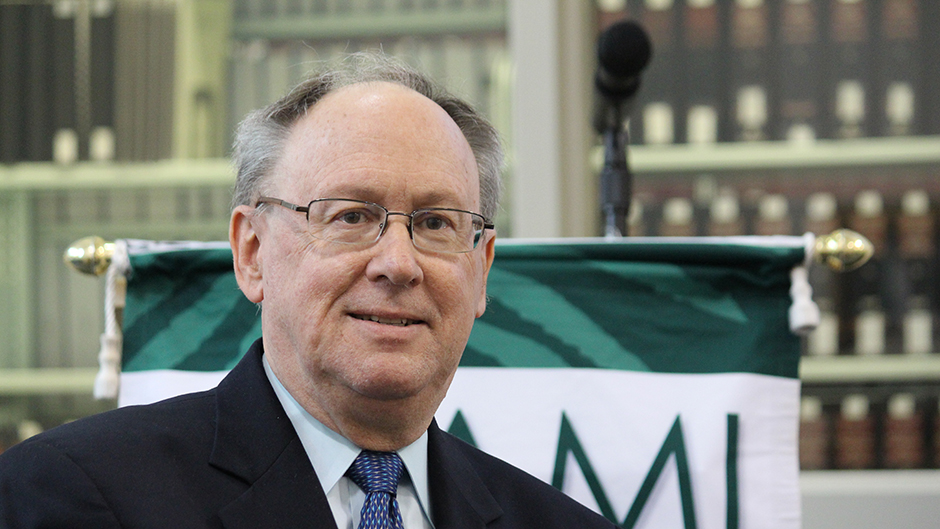There aren’t too many commodities that flow at wedding celebrations, raise tax revenues, and even treat minor cuts and bruises. It is true - no matter where we turn in society alcohol may be found. To discuss the historical and legal significance of the lucrative liquid, Robert Tobiassen, former Chief Counsel for the Alcohol & Tobacco Tax and Trade Bureau, joined Miami Law last week to speak on “The Amazing World of Alcohol: Do You or Your Car Drink the Most?”
“[Alcohol] is an amazing subject,” said Tobiassen. “Such a small commodity can raise so many legal and social issues. It is used to celebrate the good times, mourn the bad times, and has a huge economic impact.”
Alcohol has long brewed legal battles. Its significance is so deep that there have been two Constitutional Amendments to address it. The 18th Amendment prohibited alcohol, and the 21st Amendment expelled the 18th Amendment and gave states more power over its use. “Alcohol law encompasses all areas of law including constitutional law, administrative law, torts, and contracts,” said Tobiassen. “To understand alcohol law we must understand our history.”
In the 1700s, distilled spirit taxes were implemented to pay off the nation’s debt accumulated from wars. As the nation progressed through the 1800s, a huge percentage of federal revenue came from alcohol and tobacco taxes. As fiscally beneficial alcohol has proven itself to be, its consumption also gives rise to social evils. Loose laws gave rise to the temperance movement of the early 1900s as saloons and distributors maliciously pushed an agenda of mass consumption onto the public.
After hard fought legislative battles, alcohol now stands as an economic and social giant. In fact, many companies on the New York Stock Exchange have some involvement with alcohol, ranging from pharmaceutical companies to media conglomerates. Many songs in urban music reference alcohol, the four most common brands being Patron, Hennessey, Grey Goose, and Jack Daniels.
“80% of all alcohol use is industrial,” said Tobiassen. “Alcohol really affects lives - there are a lot of jobs on the line.” Amongst the biggest alcohol users are our cars, which consume over 400 gallons of alcohol per year – more than 20 times the yearly alcohol intake of the average person.
When used responsibly, drinkable alcohol may provide for an enjoyable experience. However, Tobiassen warns against the serious health concerns. There are an estimated 14 million alcoholics in the U.S. and over 100 million dollars are spent annually for alcohol-related health care.
The event was hosted by The Southern Wine & Spirits Program in Alcoholic Beverage Law.

